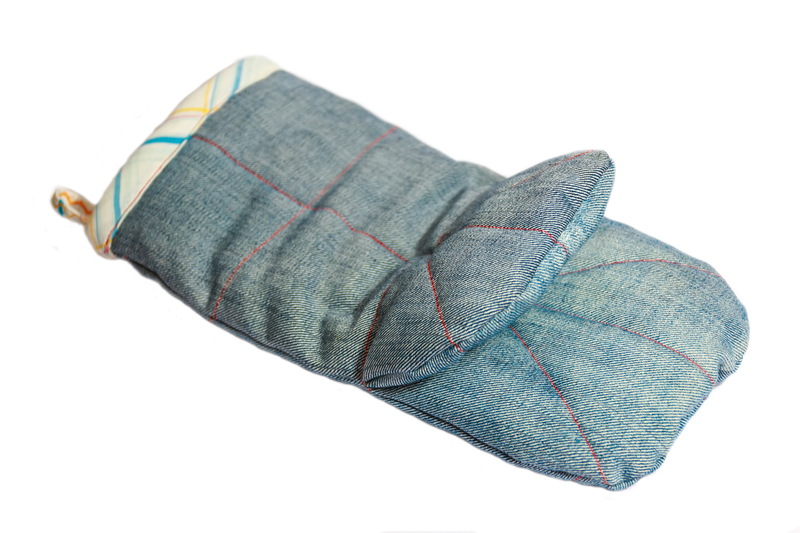Making Sustainable Choices When Disposing of Pots and Pans
Every year, millions of pots and pans end up in landfills, contributing to environmental pollution and wasting valuable resources. With a growing emphasis on sustainable living, it's never been more important to make eco-friendly choices when it's time to dispose of your old cookware. This comprehensive guide will help you understand how to make sustainable choices when disposing of pots and pans, so you can protect the planet while clearing out your kitchen.
Understanding the Environmental Impact of Non-Sustainable Disposal
Before tossing your old pans into the trash, it's important to recognize the potential harm conventional disposal can cause:
- Landfill Overflow: Cookware is often non-biodegradable, leading to years of landfill occupation.
- Resource Waste: Valuable metals and materials are lost forever when not recycled or reused.
- Chemical Pollution: Nonstick coatings like Teflon can release toxins as they break down.
Making sustainable decisions when you dispose of your cookware is not just about minimizing waste--it's about responsible stewardship of the planet's resources.

What Are Your Pots and Pans Made Of?
Material matters when considering your disposal options. Most pots and pans are made from the following:
- Stainless Steel
- Aluminum
- Copper
- Cast Iron
- Nonstick Coated Materials
- Ceramic
- Enamel
Each material has a different impact on the environment and unique recycling, upcycling, or reuse pathways.
Tip: Check the bottom of your cookware for recycling symbols or manufacturer information.
How to Make Sustainable Decisions for Cookware Disposal
Let's explore the most eco-friendly ways to dispose of old pots and pans without compromising your environmental values:
1. Donate Usable Pots And Pans
If your cookware is still functional, donating is one of the most sustainable options for disposal:
- Charity thrift stores (Goodwill, Salvation Army, local shelters)
- Community kitchens and soup kitchens
- Student housing or college dormitories
- Family or friends moving into new homes
Donating extends the life cycle of your items, reducing the ecological footprint caused by manufacturing new cookware.
2. Sell or Freecycle
Platforms like Facebook Marketplace, Craigslist, Freecycle Network, and garage sales can help you find new homes for your old pots and pans. Even items with minor wear may appeal to those starting out or seeking craft materials.
3. Recycle Your Old Cookware: What You Need to Know
Recycling is a strong sustainable choice when you dispose of non-reusable cookware.
- Metal recycling facilities: Most steel, aluminum, and copper cookware can be recycled as scrap metal.
- Municipal curbside recycling: Some city programs accept metal pots and pans; check local regulations first, as many require you to drop items off at a designated facility.
- Manufacturer take-back programs: Some cookware companies offer mail-back or exchange initiatives for used products.
Remember: Nonstick, ceramic, and enamel-coated materials may not be accepted by all recycling centers due to their composite material.
4. Upcycle and Repurpose: Creative Ways to Give Pots and Pans New Life
Unleash your creativity and make sustainable choices by giving your old cookware a new function around the house:
- Plant pots - Drill holes in the bottom and use as unique garden containers.
- Storage bins - Organize tools, craft supplies, or kitchen utensils.
- Decorative displays - Paint or decorate and use as wall art or centerpieces.
- Bird baths or feeders - Repurpose shallow pans for the garden.
This kind of upcycling not only reduces waste but also saves money and adds personality to your home.
Special Considerations for Nonstick, Coated, and Specialty Pans
Nonstick pans, especially those with Teflon (PTFE), ceramic, or enamel coatings, need mindful handling for environmentally friendly disposal.
Nonstick Cookware:
- Teflon and other nonstick coatings are not biodegradable and may contain chemicals harmful to wildlife.
- Most curbside programs do not accept coated pans--call your local recycling center to confirm rules.
- Remove handles, lids, or plastic parts before recycling the metal portions if possible.
- Seek out specialty recycling events or hazardous waste drop-off days for nonstick cookware.
Ceramic and Enamel Cookware:
- Ceramic-only items may be accepted at facilities recycling pottery or bricks.
- Cracked or chipped enamel should not be used for food but can be upcycled as planters or art.
Cast Iron:
Because cast iron lasts a lifetime and can be restored, consider gifting or refurbishing before disposal.
Step-by-Step Guide to Sustainable Disposal of Pots and Pans
- Assess Condition - Check if your pan still works for cooking, could be repaired, or is only suitable for recycling or disposal.
- Separate Materials - Remove plastic, wooden, or glass parts if planning to recycle.
- Find the Best Disposal Option - Donate, sell, recycle, upcycle, or participate in manufacturer take-back programs.
- Avoid Trashing When Possible - Sending cookware to landfill should be your last resort.
- Educate Others - Share your approach to help friends and family make sustainable disposal choices.
How to Find Cookware Recycling Locations Near You
Locating a recycling center that accepts old cookware is easier than ever with online resources:
- Earth911 (earth911.com): Enter your zip code and 'cookware' or 'scrap metal.'
- City Hall or local Department of Public Works websites often list approved recycling centers.
- Call 2 Recycle (call2recycle.org): While primarily for batteries and electronics, many locations take metals too.
- Scrap metal dealers often accept stainless steel, aluminum, and copper pans directly.
Tip: If you have a brand-name pan, check the manufacturer's website for eco-friendly disposal programs.
Buying Sustainable Cookware: A Forward-Thinking Approach
Minimizing the impact of your cookware disposal starts with smart purchasing:
- Choose long-lasting materials: Cast iron, stainless steel, and copper can last generations, reducing frequent replacements.
- Avoid disposable or low-quality cookware: These are more likely to end up in the trash.
- Look for eco-friendly production: Brands using recycled materials, ethical labor, and green production methods.
- Check for take-back programs: Some companies will recycle your old pan when you buy a new one from them.
Investing in sustainable cookware is a proactive way to reduce your future environmental footprint.
Why Sustainable Disposal of Pots and Pans Matters
The kitchen is one of the most resource-intensive rooms in the house. Making eco-conscious choices when discarding old cookware affects:
- Resource conservation: Less raw material mining and manufacturing pollution.
- Waste reduction: Landfills shrink, and disposed items experience new life cycles.
- Community support: Donations help those in need and empower local initiatives.
- Environmental stewardship: Each decision signals to manufacturers and legislators that sustainability matters to consumers.
Every pot and pan has a journey--it's up to us to ensure it ends (and begins) sustainably.

Sustainable Disposal FAQs
Can all pots and pans be recycled?
Most metal cookware (stainless, copper, aluminum, cast iron) can be recycled as scrap metal. Nonstick, ceramic, and enamel cookware require special handling and may not be accepted at all facilities.
What should I do with plastic or wooden handles?
Before recycling, remove any non-metal components. Plastic and wood cannot be recycled with metal but may have separate upcycling uses.
Are there any dangers in disposing of old cookware?
Yes--nonstick coatings can release harmful chemicals into the environment if not handled properly. Always seek sustainable or approved disposal methods.
How can I upcycle cookware safely?
Clean and disinfect secondhand or old cookware before upcycling, handle sharp edges carefully, and never use damaged cookware for food after its original purpose is over.
Conclusion: Make Responsible Choices When Disposing of Pots and Pans
Making sustainable choices for disposing of pots and pans doesn't have to be complicated. By reusing, recycling, upcycling, or donating cookware, you help reduce waste, conserve energy, and support your community. A few extra steps for sustainability can make a significant difference for our planet.
Next time you clean out your kitchen, remember: Every pot and pan deserves a responsible send-off. Your mindful actions inspire others, drive positive change in brand practices, and pave the way toward a greener future--one pan at a time.
Ready to make sustainable choices when disposing of pots and pans? Share your experience and tips with friends, family, or online communities--together, we can cook up a cleaner world!